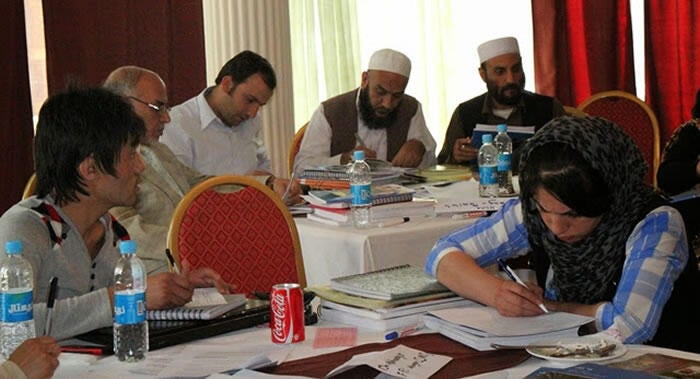On Monday 13 May, 27 participants from seven provinces assembled at Park Star Hotel in Kabul to learn about gender based violence (GBV) and child protection in emergencies. The four days workshop was organized by UNFPA and UNICEF in Afghanistan, and the participants came from organizations who assist survivors of gender based violence, or who are members of Child Protection Action Networks.
Ms Devanna de la Puente, Rapid Response GBV Regional Expert, was the main facilitator. During the workshop, participants learnt about GBV, child protection and humanitarian work. They shared stories of cases of violence against women, girls and boys from their respective work, mapped what kinds of services are available to survivors of exploitation and abuse, and what is needed to improve coordination between GBV and child protection actors.
Some of the challenges the participants mentioned to support GBV survivors were lack of knowledge about women's rights and services provided, traditional perceptions about girls' and women's roles in society, such as restriction of movement, child marriages and forced marriages, lack of resources to long term projects, and the need for streamlined data collection mechanisms and information sharing.
UNFPA has during the last year worked closely with the International Medical Corps and the Afghanistan Independent Human Rights Commission to implement a pilot model of a One Stop Assistance Centre for GBV survivors in Nangarhar, and to establish a coordinating regional working group for GBV actors. The same will now be done in several of the other regions in collaboration with the participants of the training.
Ms Nigina Abaszade, Gender Specialist in UNFPA, said that she was happy to see so many participants represented at the training. "Protection against violence and providing assistance to survivors, is crucial for the development of Afghanistan. During this week the participants have established important contact amongst themselves. We will work to strengthen these relations. This is an important step to provide assistance to survivors of gender based violence across the country."


